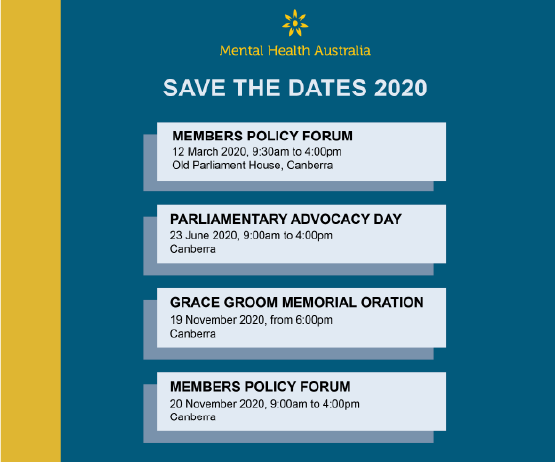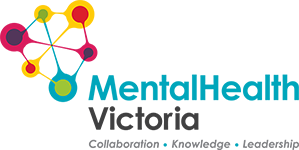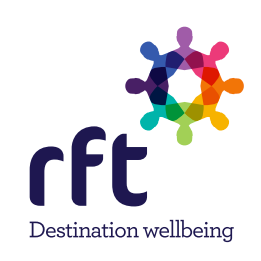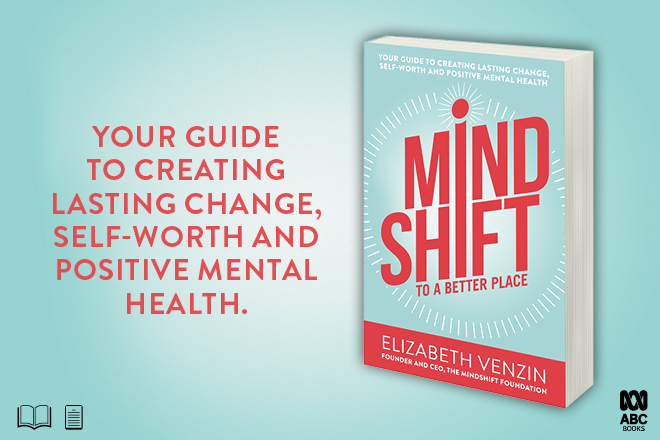Donate life for hope and a positive mental health ripple effect
In a world where we often, and sadly, only celebrate life when there is death, this weekend I plan to celebrate and remember my sister, and focus on the many lives her death has helped save and improve.
Two and a half years on from her unexpected death at 43, our decision to donate her organs has changed the lives of many people, including mine.
Her liver went to a man who wrote the most beautiful letter about how grateful he is.
His partner wrote to me about how her first partner had died, and what it meant that her second partner is now living and not facing death.
Deanna’s corneal donation means a young boy can now see. A grandfather can now breathe, two women are off dialysis, and numerous people have benefitted from her skin and bone tissue.
Confronting? Yes, it is. But hope for others at a time we had none? Undoubtedly.
Many profound messages of hope fulfilled, because that’s what organ and tissue donation can do.
When we talked about the theme for this week’s blog in the office, I actually wondered ‘what does organ donation have to do with mental health?’ and whether I was blurring two issues I’m so passionate about – mental health and organ donation. But the team quickly reminded me of the positive ripple effects of hope through organ donation, and its impact on physical and mental wellbeing.
Physically, we know it helps severely sick people to live, and to go on and thrive when they may not have previously, but the lifesaving donation of an organ or tissue is much more than a physical fix.
The hope that organ donation conveys, and what that can do for someone’s mental health and that of their carers, family and loved ones is immeasurable.
Hope for potential recipients to keep waiting and fighting. Hope for eventual recipients to keep living. And hope for the families and friends of many who share the journey, as well as the distress and anxiety of it all.
If hope is the primary mental health benefit for organ donation recipients and their loved ones, then for the families of donors perhaps knowing that such hope exists can help provide meaning and sense at an extremely difficult time.
Acknowledgement of the donor’s contribution is also important to donor families, who support this week’s tabling in the ACT Legislative Assembly of a Private Business Bill to recognise organ and tissue donation on a death certificate, a national first.
Tomorrow, I’m attending the Donate Life ACT Service of Remembrance and Thanksgiving in Canberra to celebrate those impacted by organ and tissue donation. Each state holds these services throughout the year and you can find more information here.
On Wednesday, my family will attend the Gift of Life Walk around Lake Burley Griffin, to raise awareness in support of organ and tissue donation and promote registration on the Australian Organ Donor Register.
To find out more about the events in Canberra this week click here, or to register to donate click here. After all it only takes a minute to register as an organ and tissue donor, a minute to help maintain hope and cause a positive ripple effect.
I miss my sister terribly. But it’s a wonderful experience to receive a letter from her recipients and feel proud about what she has done, and continues to do after she has gone. This genuinely helps my mental wellbeing on those days grief is almost unbearable. An experience I know many of you share.
For me personally, knowing that our loss has in some way benefited others is a small and calming comfort to not having my sister here with us today, and if nothing else that fact has to be good for my own mental health.
Kind regards,

Melanie Cantwell
Acting CEO

Embrace Multicultural Mental Health News
|
|
The Framework for Mental Health in Multicultural Australia (the Framework) is a free, nationally available online resource which allows organisations and individual practitioners to evaluate and enhance their cultural responsiveness. It has been mapped against national standards to help you meet your existing requirements, with access to a wide range of support and resources.
Embrace Multicultural Mental Health (the Embrace Project) has been holding free workshops around Australia across 2019-2020 to support implementation of the Framework by mental health services, Primary Health Networks, individual practitioners and others. The workshops provide an overview of the Framework and explore how it can be tailored to best meet your needs and the needs of your local community.
Workshops for 2019 have now ended. Workshop dates for 2020 are listed below:
- ACT: Hellenic Club of Canberra, Phillip, 26 February 2020
- WA: Technology Park Function Centre, Bentley, 4 March 2020
- WA: Technology Park Function Centre, Bentley, 5 March 2020
- NT: Mercure Darwin Airport Resort, Marrara, 26 March 2020
Please click here to register for a workshop near you.
|

|
Applied AI technology makes its mark on national suicide monitoring
Monash University and Eastern Health’s Turning Point are using a $1.2 million (AUD) grant from Google to address major mental health challenges in society.
Read more
Discussion Paper: Systemic barriers in Disability Employment Services to supporting people with mental illness
Worklink has released a paper outlining how reforms to Disability Employment Services have limited the ability of providers to support people with mental illness. Worklink is an experienced community mental health and employment services provider. The paper discusses systemic barriers to quality service delivery and recommendations for change.
Read more
AMA calls on government to address compliance confusion
The AMA is calling on the Government to urgently address confusion created by Medicare compliance activities and better support GPs to care for patients holistically, including clarifying legitimate circumstances where GPs can treat and subsequently appropriately co-claim patients who are seeking both mental and physical health care.
Read more
Royal Commission Sydney hearing begins
The Royal Commission into Violence, Abuse, Neglect and Exploitation of People with Disability began its next hearing at Sydney Olympic Park, Homebush on Tuesday 18 February.
Read more
Victoria launches Australia’s first autism campaign
The Victorian Government has established Australia’s first social behaviour change campaign to promote better understanding and inclusion of autistic people.
Read more
|
|
|
|
On Monday morning Mental Health Australia staff will be updating their CPR training while in the afternoon Acting CEO, Melanie Cantwell, and Director – Policy and Projects Harry Lovelock, will meet with Mark Roddam, First Assistant Secretary, Department of Health. Melanie and Harry will then attend the Parliamentary Friends of Palliative Care Drinks event at Parliament House
Tuesday sees Harry Lovelock participating in the National Peak Bodies Bushfire Recovery Forum in Canberra.
On Wednesday, the Embrace Multicultural Mental Health Project team are holding a Framework Workshop in Canberra. The workshop will provide an overview of the Framework for Mental Health in Multicultural Australia and explore how it can be tailored to best meet your needs and the needs of your local community. On Wednesday afternoon the Mental Health Australia FARM Committee will meet via teleconference
On Friday, Harry Lovelock will be participating in the National Disability and Carers Alliance Meeting, followed by the NDIA CEO Forum in Melbourne. Also on Friday Melanie Cantwell, and other Mental Health Australia Staff will be attending an AICD Directors Download.
|
|
|

Mental Health Victoria is the peak body for organisations that work within or intersect with the mental health system in Victoria. They advocate for reforming the mental health system to ensure that people living with mental health issues can access the care they need, when they need it. Reflecting the composition of the mental health system itself, their members come from a mix of clinical and non-clinical, acute and community-based, and public and private organisations. In addition, they work closely with stakeholders from a broad range of intersecting systems including aged care, disability, housing, public safety and legal services.
Website: www.mhvic.org.au Facebook: https://www.facebook.com/mentalhealthvic/ Twitter: https://twitter.com/MentalHealthVic

Richmond Fellowship Tasmania is an industry leader in the area of mental health recovery, offering a supportive best-practice approach that focuses on both the client’s present and future needs. They align all their services with their clients’ wellbeing – through the provision of a supportive, engaging and non-judgemental environment that celebrates diversity. Their organisation also works closely with the industry peak body, Mental Health Council of Tasmania, guiding the development of policy and strategies for mental health support.
Mission - To help people to be the best they can be.
Vision - Compassionate and generous, they strive to bring clarity where there is confusion.
Website - www.rft.org.au Facebook - www.facebook.com/rftdestinationwellbeing
|
|
Addressing the philanthropy deficit in mental health NGOs
A Future Generation survey, conducted by EY found:
- only 28 per cent of private funders consistently invested in mental health causes
- for every $5 cancer charities received, mental health charities received just $1.
The report pointed out that while the number of mental health charities has almost tripled since 2000, funding has not kept pace, ranking 17th out of 26 in the list of income by main activity.
The Queensland Mental Health Commission, in partnership with the Queensland Alliance for Mental Health, Queensland’s peak body for mental health not-for-profit organisations, invite you to a seminar with Future Generation CEO Louise Walsh to examine the report’s findings and what it means for Queensland’s mental health NGO sector.
Read the report
Read more and register here
Consumers Health Forum of Australia Summit 2020
The Consumers Health Forum of Australia (CHF) welcomes you to their inaugural Australia and New Zealand Consumer Experience and Leadership in Health Summit, Shifting Gears. Successful health strategies, policies and programs depend on consumers involved at each stage of development, implementation and evaluation. CHF Summit 2020: Shifting Gears will draw together consumers and other leaders from the health sector, to explore the latest research and developments which drive health towards a consumer-centred culture.
The event will take place on 2-3 September 2020 at the International Convention Centre in Sydney.
Read more
National Centre for the Prevention of Child Sexual Abuse: Have your say
The Australian Government will today commence a public consultation process to inform the design of the National Centre for the Prevention of Child Sexual Abuse (the National Centre).
The establishment of a National Centre was a recommendation (9.9) of the Royal Commission into Institutional Responses to Child Sexual Abuse (Royal Commission). The Royal Commission recommended the Australian Government, along with state and territory governments, establish a National Centre to address child sexual abuse by reducing stigma, promoting help-seeking and supporting good practice. The National Centre will provide a national strategic focus to coordinate research and build service capability to both respond to and prevent child sexual abuse.
The Australian Government is inviting interested stakeholders to have their say on the scope, function and priorities of the National Centre via an online survey. Input from people with lived experience, their families and the broader sector is particularly welcome.
The consultation will be open from Monday 17 February until Sunday 15 March 2020.
Read more
AIFS releases preliminary program
The Australian Institute of Family Studies (AIFS) has released an exciting preliminary program for its biennial conference, on again this 9–12 June. The theme for the conference is: What is a good life for families? And how do we get there? The program includes six plenary sessions, five pre-conference workshops and 212 oral presentations all focused on the wellbeing of families.
Keynote speakers include: Patricia Turner AM, Annabel Crabb, Professor Marian Baird, Professor Fiona Arney and Tim Dunlop, amongst others.
Register by Friday 3 April to make the most of early bird and save $140 off the standard ticket price.
Read more
Mental Health Across the Lifespan 2020 Conference: Towards an integrated, accessible and trusted mental health system
17–18 March 2020, Pullman Melbourne, Albert Park
Mental Health Victoria’s annual conference brings leaders and innovators across the mental health and related sectors to meet, share, inspire and network. Choose from 60 presentations across four streams – early years to youth, adulthood, later life and suicide prevention. Hear high-profile local and international speakers who will explore ways to transform mental healthcare and suicide prevention across the lifespan.
Register here
Read more
MindShift to a better place: Book now for sale
‘Your guide to creating lasting change, self-worth and positive mental health.’
You can read The MindShift Foundation CEO Elizabeth Venzin’s book now. In the book you’ll find find practical information and useful resources to help grow your self-worth or assist someone you care about with theirs.
Read more
|
|
|
|

|
![]()








